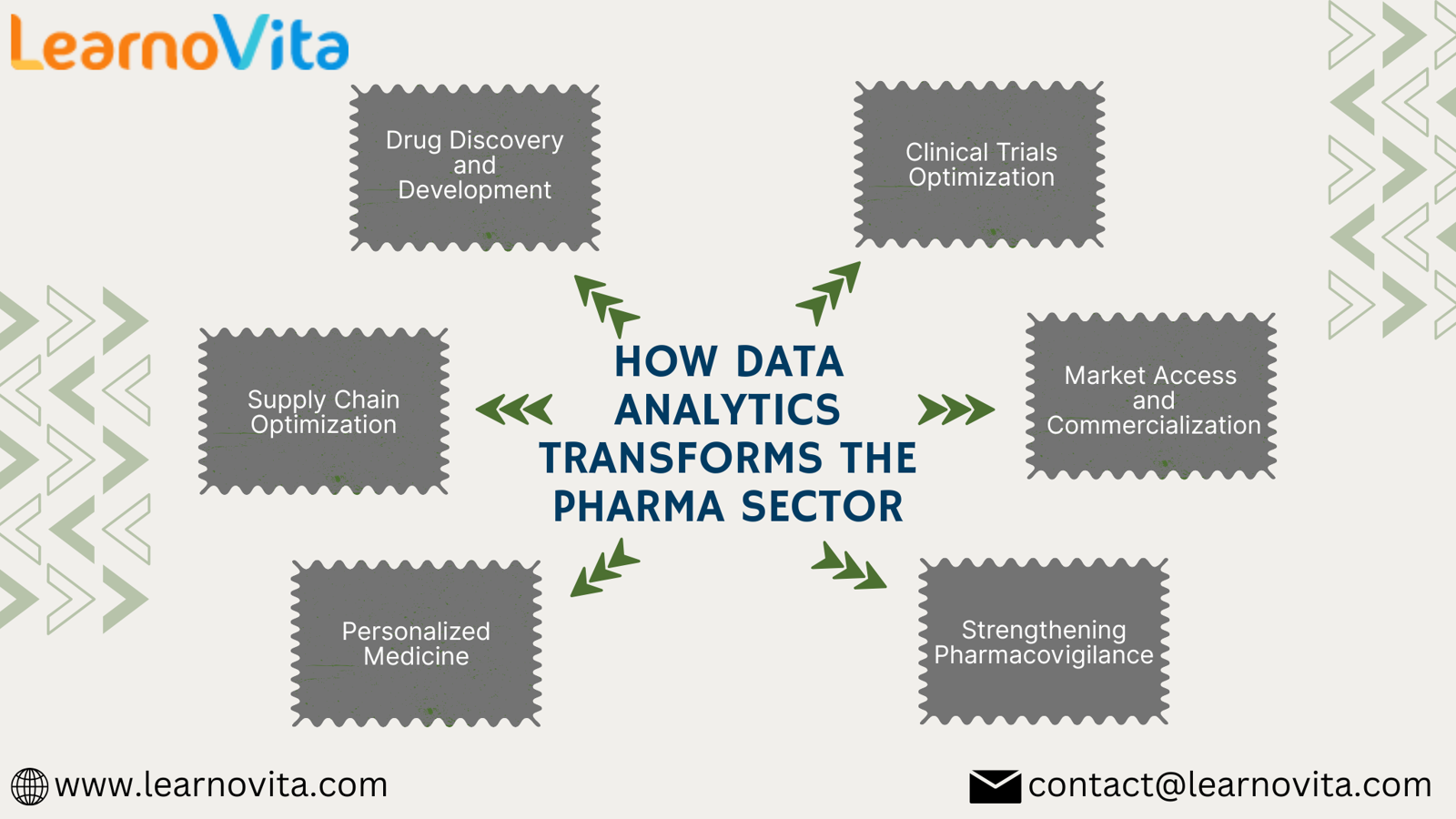Exploring the Role of Data Analytics in Pharmaceutical Innovation

1. Revolutionizing Drug Discovery
The traditional drug discovery process is lengthy and costly, often taking over a decade to bring a new drug to market. Data analytics accelerates this process by enabling researchers to sift through vast amounts of biological data. Key contributions include:
- High-Throughput Screening: Analyzing large libraries of compounds to identify potential drug candidates more efficiently.
- Predictive Analytics: Utilizing algorithms to forecast how certain compounds will interact with biological targets, thus streamlining the selection process.
2. Enhancing Clinical Trials
Clinical trials are critical for testing the safety and efficacy of new drugs. Data analytics transforms this phase by:
- Optimizing Trial Design: Analyzing historical data to refine trial protocols, including patient selection and dosing strategies.
- Real-Time Monitoring: Implementing data analytics tools that allow researchers to track trial progress and participant responses in real time, enabling adaptive trial designs that can respond to emerging data.
3. Driving Personalized Medicine
The shift towards personalized medicine is one of the most significant trends in healthcare. Data analytics facilitates this move by:
- Genomic Data Analysis: Integrating genetic information with patient data to tailor treatments to individual profiles.
- Risk Stratification: Identifying patients at higher risk for certain conditions, allowing for targeted prevention strategies and personalized treatment plans.

4. Improving Market Access Strategies
Once a drug is developed, understanding how to effectively bring it to market is crucial. Data analytics assists in:
- Market Segmentation: Leveraging data to identify specific patient populations and their needs, guiding marketing and sales strategies.
- Competitive Analysis: Monitoring competitor activities and market trends to inform strategic positioning and pricing decisions.
5. Strengthening Pharmacovigilance
Post-launch safety monitoring is essential to ensure that drugs remain safe for public consumption. Data analytics strengthens pharmacovigilance through:
- Adverse Event Reporting: Analyzing data from healthcare providers and patients to identify potential safety signals.
- Signal Detection: Applying sophisticated statistical methods to detect patterns that may indicate emerging safety issues, allowing for timely interventions.
6. Streamlining Supply Chain Operations
Efficient supply chain management is vital for ensuring that drugs reach patients promptly. Data analytics enhances supply chain operations by:
- Inventory Optimization: Forecasting demand based on historical data to minimize stockouts and reduce waste.
- Logistics Efficiency: Using data to optimize transportation routes and reduce costs associated with distribution.
Conclusion
The role of data analytics in pharmaceutical innovation is profound and multifaceted. By embracing data-driven strategies, pharmaceutical companies can accelerate drug discovery, optimize clinical trials, enhance patient care, and streamline operations.

Comments
Post a Comment